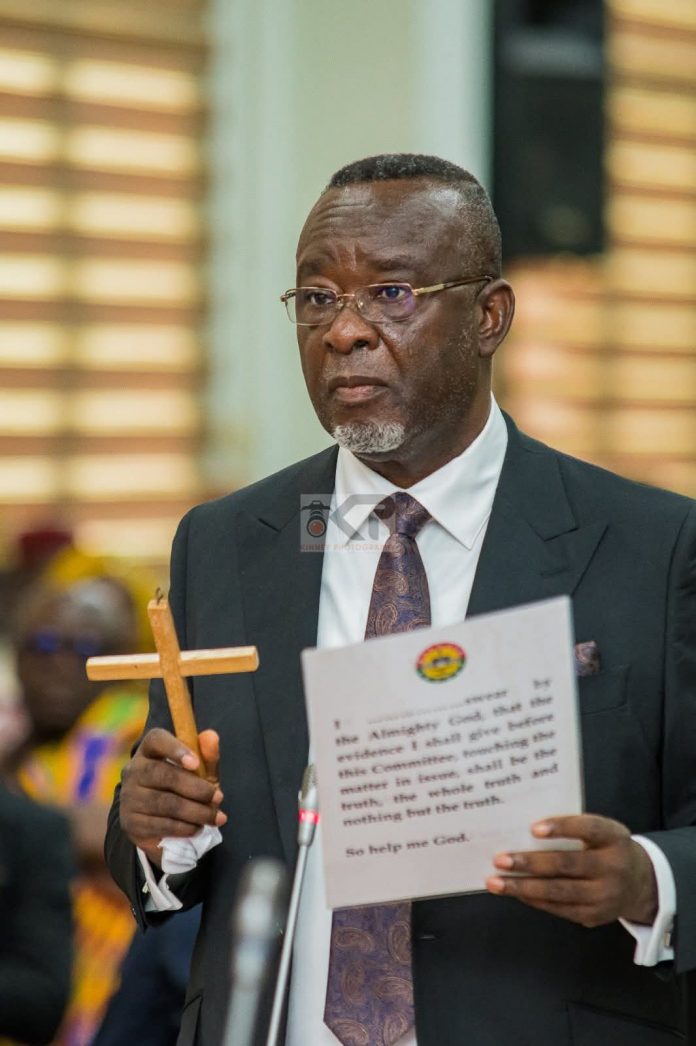Deputy National Communications Director of the New Patriotic Party (NPP), Alhaji Kamal-Deen Abdulai, has criticised Chief Justice nominee, Justice Paul Baffoe-Bonnie, for justifying the 70-year jail term handed to convicted armed robber Ataa Ayi on grounds of personal fear.
Kamal-Deen described the nominee’s explanation as “very low” and inconsistent with the principles of judicial fairness and oath of office.
“I chanced on something when watching the vetting process, and I was appalled. A judge who is supposed to be the head of affairs of the judicial system of our country said he had to give somebody 70 years because he was afraid to die when he came out, he would attack him and his family. I was surprised. That comment was very low,” he said.
According to him, such reasoning undermines the integrity of the judiciary and contradicts the very oath judges take to administer justice fairly and without fear or favour.
“Your own judicial oath tells you to ensure that you work within the tenets of the law, and you tell me that for fear you gave somebody 70 years because you didn’t want to give 30 years for him to come and attack you? The ratio he gave was flat,” he added.
Justice Baffoe-Bonnie, appearing before Parliament’s Appointments Committee on Monday, November 10, defended his decision, saying the 70-year sentence was necessary to safeguard the public and ensure deterrence against violent crime.
He noted that while sentencing must reflect justice, it must also take into account public safety and the gravity of the offence.
Ataa Ayi, once branded Ghana’s most notorious armed robber, led a gang that terrorised Accra and its environs in the late 1990s and early 2000s, robbing victims at gunpoint and escaping with vehicles, cash, and valuables. His capture in 2005 after an intense manhunt and subsequent conviction marked a significant milestone in Ghana’s fight against armed robbery.
However, Alhaji Kamal-Deen believes the Chief Justice nominee’s reasoning during the vetting sends the wrong signal about judicial impartiality.
























































![[FREE FREE MONEY] Predict and Win a Guaranteed GH¢200 From Us EVERY WEEK](https://wordpress.ghanatalksradio.com/wp-content/uploads/2022/02/Predict-and-Win-Final-09-03-2021-218x150.jpg)
![[Predict & Win – 8th/Oct.] WIN A Guaranteed ¢200 From Us This Week](https://wordpress.ghanatalksradio.com/wp-content/uploads/2021/10/maxresdefault-16-218x150.jpg)
![[Predict & Win – 2nd] WIN A Guaranteed ¢200 From Us This Week](https://wordpress.ghanatalksradio.com/wp-content/uploads/2021/09/maxresdefault-50-218x150.jpg)
![[Predict & Win – 25th] WIN A Guaranteed ¢200 From Us This Week](https://wordpress.ghanatalksradio.com/wp-content/uploads/2021/09/maxresdefault-36-218x150.jpg)
![[Predict & Win – 18th] WIN A Guaranteed ¢200 From Us This Week](https://wordpress.ghanatalksradio.com/wp-content/uploads/2021/09/maxresdefault-23-218x150.jpg)









![[National cathedral] See full list of churches that have contributed since 2018](https://wordpress.ghanatalksradio.com/wp-content/uploads/2020/09/Ghana-National-Cathedral-GhanaTalksRadio-100x70.jpg)



